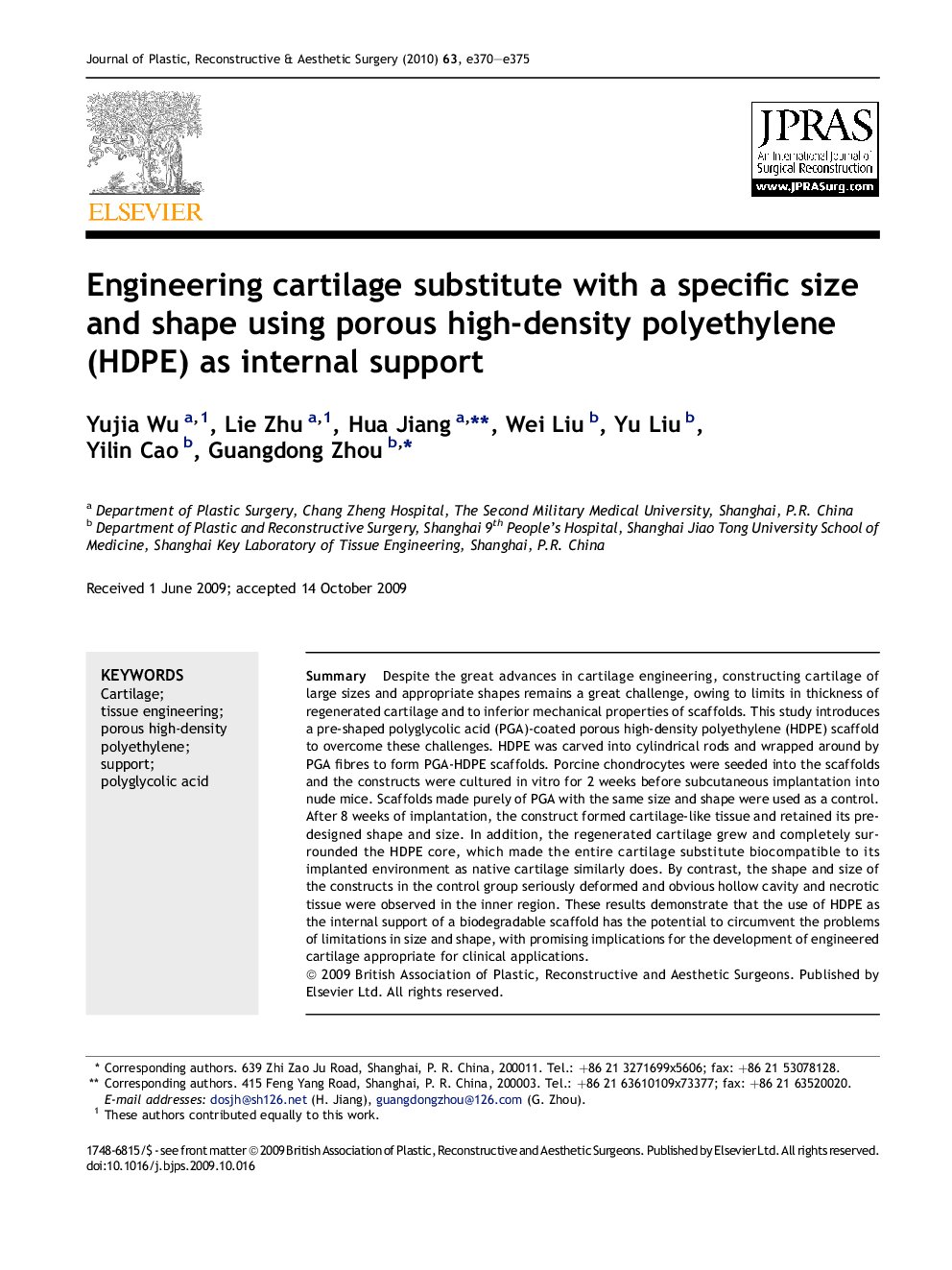| کد مقاله | کد نشریه | سال انتشار | مقاله انگلیسی | نسخه تمام متن |
|---|---|---|---|---|
| 4119637 | 1270358 | 2010 | 6 صفحه PDF | دانلود رایگان |

SummaryDespite the great advances in cartilage engineering, constructing cartilage of large sizes and appropriate shapes remains a great challenge, owing to limits in thickness of regenerated cartilage and to inferior mechanical properties of scaffolds. This study introduces a pre-shaped polyglycolic acid (PGA)-coated porous high-density polyethylene (HDPE) scaffold to overcome these challenges. HDPE was carved into cylindrical rods and wrapped around by PGA fibres to form PGA-HDPE scaffolds. Porcine chondrocytes were seeded into the scaffolds and the constructs were cultured in vitro for 2 weeks before subcutaneous implantation into nude mice. Scaffolds made purely of PGA with the same size and shape were used as a control. After 8 weeks of implantation, the construct formed cartilage-like tissue and retained its pre-designed shape and size. In addition, the regenerated cartilage grew and completely surrounded the HDPE core, which made the entire cartilage substitute biocompatible to its implanted environment as native cartilage similarly does. By contrast, the shape and size of the constructs in the control group seriously deformed and obvious hollow cavity and necrotic tissue were observed in the inner region. These results demonstrate that the use of HDPE as the internal support of a biodegradable scaffold has the potential to circumvent the problems of limitations in size and shape, with promising implications for the development of engineered cartilage appropriate for clinical applications.
Journal: Journal of Plastic, Reconstructive & Aesthetic Surgery - Volume 63, Issue 4, April 2010, Pages e370–e375